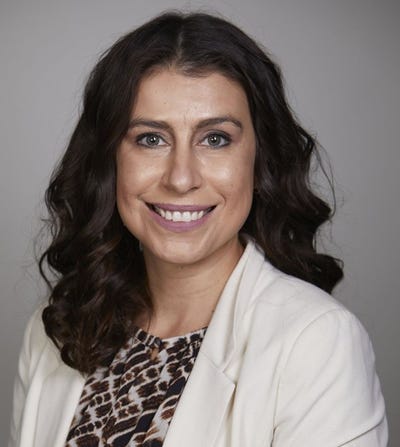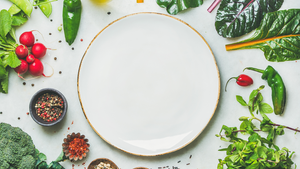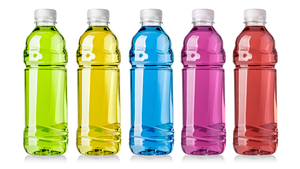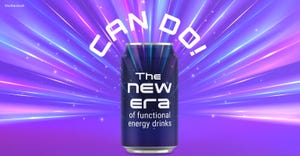Sun & Swell’s Clean Cookie Bites uses CA-grown dates and compostable packaging – Podcast
Sun & Swell Food’s compostable packaging – which CEO Kate Flynn said is ‘the way of the future’ – garnered it a finalist’s spot in the 2020 NEXTY Awards.
Sun & Swell’s Foods’ Clean Cookie Bites is a finalist for the Best Environmentally Responsible Packaging category at the 2020 NEXTY Awards because they come in composable pouches that fully decompose within 180 days. Product integrity is found inside the package too, with a product that’s made with whole-food, plant-based ingredients, half of which are sourced from California.
In this podcast, Kate Flynn, CEO and founder, Sun & Swell Foods, talks with Sandy Almendarez, content director, Informa Markets, about the how the product was formulated, sourced and packaged. They cover:
The challenges with offering compostable packaging to consumers who are used to the look of plastic.
The R&D process Sun & Swell went through to achieve a product with so few whole-food ingredients.
The commitment to sourcing half of all its ingredients – mainly the dates – from California.
The 2020 NEXTY Award winners from Expo West will be revealed live on newhope.com on March 25, 2020 at 2 p.m. MST. Click here for more information.
Podcast transcript:
Sandy Almendarez, content director, Informa Markets: Hi, and welcome to a Healthy Insider Podcast. I am Sandy, and on the phone, I have a Kate Flynn who is CEO and founder of Sun & Swell Foods. Hi, Kate.
Kate Flynn, CEO and founder, Sun & Swell Foods: Hi, how are you?
Almendarez: Great! Thank you so much for joining me today. Today we are going to talk about Sun & Swell’s Clean Cookie Bites, which is a finalist for the Best Environmentally Responsible Packaging category at the NEXTY awards. Sun & Swell offers clean, whole food Cookie Bites in composable pouches that fully decompose within 180 days. The product contains dates, cashews, oats, cocoa and cinnamon, and has no added sugar, added preservatives or added flavor. Fifty percent of its ingredients are sourced from California, and Sun & Swell products are gluten free, dairy free, soy free and vegan.
In addition, the company is focused on ocean conservation. Through 1% for the Planet, Sun & Swell gives a portion of its revenue and time to Channel Islands Marine and Wildlife Institution (CIMWI), an organization that rescues and rehabilitates ocean wildlife.
As I mentioned Kate, you are a finalist for the NEXTY award for the best Environmentally Responsible Packaging, so, let's start there. Why was using composable pouches so important, and what challenges did you face finding that type of packaging?
Flynn: When we when we started the company several years ago, the problem we were really trying to solve was making whole, real food snacks more accessible to people. That was the No. 1 thing on our mind, and after we launched the company and started selling, our snacks and started gaining traction. It started to occur to me that although we're solving one problem, we are playing a role in another problem, which is single-use plastic, and I quickly started to think about, “How can we start to also play a role in addressing this other issue that's so prevalent in the package food industry?” I came across an organization or company called TIPA, based out of Israel, and they offer composable, flexible film, which we can sell our snacks in, and as soon as I learn about this option, I was all in. My thought was, “If there is there's an option to do composable, we have to be doing it.” As a smaller company, we have a lot of flexibility in making those decisions really quickly. Myself and my cofounder are the only two people who need to agree on whether or not we want to do that, and we decided, “Let's do it,” From when we discovered it to when we actually got it on the market, it took about nine months.
We ended up launching our composable packaging last year in 2019, and when we first brought it to the market, I over ambitiously expected that we would be able to transfer 100% of our snacks into composable packaging within six months. I thought, “We're going to get our first order, we're going to make the transition, and we're going to go entirely composable all across all of our product lines, all of our snacks, all of our sales.” What I learned is composable is much more complex than I thought it was, and that most people know it is.
The first question that we always get with composable is, “How does that impact our costs?” Honestly, the cost of composable is really my lowest concern. It's actually not that significant, and on a little bag, it's pennies. It doesn't make that much of a difference. But the bigger complexities with compostable are the shelf life of the package itself. What makes composable packaging really cool is that it does have a shelf life. But also is what makes it really challenging to work with. The stated shelf life of composable packaging is nine months, which means in nine months, it's not going to start to disintegrate, it's not going to disappear or crumble or anything like that, but the seals might start coming apart, etc. We found at nine months is the shelf life of the composable, as long as it's stored in perfect conditions and not transport around a lot. Our biggest challenge is been the shelf life of the packaging and what the packaging looks like when it actually gets handled, gets shipped around, gets stored in a warehouse and then when it goes out onto the shelves. When we first launched, we started transitioning all of our customers to composable packaging. And then, three months later, we'd walk into stores and see our packing on shelf, and it honestly wouldn't look good. It would be all wrinkled. It would look like it's like been through war and back. It was not appetizing. Although the food inside was fine, if the package, doesn't look it on the shelf, people aren't going to buy it, and it creates food waste, so that's the biggest challenge that we've discovered and been dealing with.
The way we've addressed that is we're selectively sending our composable packaging through channels where we have a direct control of how it's getting distributed. For example, we sell our compostable at the University of California, Santa Barbara, and we work with a local distributor. They pick it up from our manufacturing facility, and within a week or two, it's delivered to UC Santa Barbara, and they're consuming that product within a couple months, and they know it's composable. So, if it gets a little wrinkly, it's not a big issue. We're trying to address the challenges right now by keeping more control of how we're distributing the composable packaging.
The packing technology is improving every day. It's so so new to the market. Plastic packaging has been around for over 50 years. They've had time to perfect it. They know how every single type of product reacts to it. Composable might react differently with our product than with somebody else is, and so it's still a big learning process. Last year, we were able to do about 15% of our sales in composable; 10 to 15%. Our goal this year is to double that, and it's a journey. It doesn't happen overnight, it's a journey, and we're learning and working through it every day, but also so passionate about making sure that this is the way of the future and making sure we have a big role in it.
Almendarez: That certainly sounds really challenging, and I love that you called it a journey, and I love that you are so focused on it and committed. Other brands may have said “It's not worth it to do this,” so that’s really commendable. Let's talk about the formulation of these Clean Cookie Bites, which are very tasty in my opinion. Can you tell me about the R&D process Sun & Swell went through to achieve a product with so few and whole food ingredients?
Flynn: Our role, which might be totally opposite of most companies, is if we have to involve the food scientists, it's probably not the right product for Sun & Swell. We want our recipes to be simple enough that if you wanted to make the product in your kitchen, you could do it. And that's how all of our recipes were born. For our cookies, I found a recipe for chocolate chip cookies on the Internet. Just a plain old recipe, nothing special about it, and I tried to replace all of the stuff that aren't. Basically, instead of using regular flour were going to use nut flour in its place, or if it called for sugar I said, “OK instead of using sugar we're going to use dates in its place.” I started to map out all of the ingredients that may be considered a whole food ingredient, but might not be considered a clean ingredient and recreated the recipe in a way to make it fit our criteria of gluten free, dairy free, soy free, etc. I played around with it till it worked and then my mom, who has a culinary degree and she helped us with recipe development and refinement. She helps us get the flavor spot on. Our secret is that there is no magic behind; it is just us working in the kitchen trying to create the best delicious recipes out of the most wholesome foods that we possibly can. And if it requires to us to go outside of our kitchen and use the food scientists, that would not be the right product for us, so it's pretty simple.
Almendarez: Interesting. You mentioned working to make it free of allergens, obviously not nuts because there's nuts in it. But was it a challenge to ensure that you were dairy free, soy free, gluten free and vegan?
Flynn: Yeah, about six months before we start developing recipes, I had made a major shift in my diet, and I started eating that way, so I started to eat a whole-food, plant-based diet, and I avoided any of the ingredients that can be known to cause inflammation in your body, which are a lot of the allergens. About six months before we started doing the recipe development for Sun & Swell, I had gone through this major learning experience. “OK, I'm trying to stay away from refined sugar. What can I use in this place?” That’s when I discovered dates and what amazing source of natural sugar dates could be. I don't think I'd ever eaten a date before I switch my diet to eating this way. I learned all the alternatives to gluten because I was avoiding gluten. So, when we ultimately came to develop our recipes, it was pretty intuitive to me, but only because I had gone through this major learning process. I learned all the substitutes, learned all the options that I could make something super delicious without having all of the ingredients we are used to having as staples in our diets. That flow throughout all of our recipes. It's the type of food I would eat. I may I have to get creative. If I'm going to make lasagna for myself, I'm not going to make a regular lasagna. I'm going to make a butternut squash lasagna with cashew ricotta cheese instead of real cheese. I'm constantly thinking of how to substitute out normal recipes with a whole-food, plant-based recipes that'll eliminate a lot of that stuff.
Almendarez: It makes sense that since that's a diet you were following that during all those iterations that you will perfecting, that if you want to be able to try it, you had to make sure that it complied to your standard. So let's talk about this sourcing. Why is it important that more than half of your ingredients are sourced from California?
Flynn: Our products are largely date-based, and we're fortunate enough to have some of the largest state farms in the country in Southern California, where we’re based. When we first started, it was, “OK, this is an easy way to get it right. It's great that it's close, and it's a way for us to get great local ingredients,” and it was a no brainer. And as we scaled, what we've realized is, there's definitely cheaper options. If we wanted to get dates for a cheaper price, we could, especially if they were imported. We get a lot of people trying to sell us imported dates for a lower cost, and we take a step back, and we're like, “We have this like beautiful, amazing fruit grown close to us. Such high-quality. Not a huge carbon footprint transferring them all across the world. They’re just coming 100 miles for us to manufacture.” It seems so important to us that we if we're able to source something close to home, we need to. We were really lucky to have this amazing date farm, which is one of the biggest ones in the country, and they started working with us when we when we were ordering one little 20-pound case at a time, and now ordering pallets at a time, and they stuck with us through the whole the whole journey. It shows us the value of working with somebody who's local and keeping that strong relationship. It's something we felt really good about putting in our products.
Almendarez: So, let's talk about the philanthropy aspect. Tell me about your partnership with 1% for the Planet and Channel Islands Marine and Wildlife Institution (CIMWI).
Flynn: Yes, and I'll call them CIMWI for short.
Almendarez: Ah, CIMWI. I wasn't sure how to pronounce it.
Flynn: We joined 1% for the planet once we learned about it. For us, it was almost a no brainer. It's a way for us to, as we're a business. We’re making making a product, how can we give back to the environment in some way? We, for awhile, were searching for the perfect partner for us, and we knew we wanted to partner with a nonprofit to give our 1% of revenue to that something to do with the ocean. We’re based in Santa Barbara. We’re a team of surfers and beach lovers, and finding some way to help our oceans was our top priority for us when it came time to giving back. We learned about CIMWI. CIMWI rescues and rehabilitates sealions off the coast of Santa Barbara. Last year, I don’t know the exact number, but they saved about the lives of about 200 sealions, and this is a small organization. It's such an incredible nonprofit. We're all animal lovers, so we all have this soft heart for what they're doing, and they're making such a big impact on animal lives. And we chose to work with them because a) we love their mission. But b) we felt like we could have an impact with them. Our dollar we feel like goes along way with them, and we're really, really grateful to have them. They feel like the perfect partner for us. We actually just added on our most recent run of packaging a little sealion to the bottom of it. So, if you ever if you flip it over and see a little sealion in the bottom, it's a little tribute to CIMWI.
Almendarez: That's adorable. Well, thank you so much, Kate, for joining me for this conversation. I really appreciat it.
Flynn: Of course, thank you so much for having me.
Almendarez: It sounds like Sun & Swell is doing so many good things in many different avenues, so I really appreciate it. And, again Sun & Swell Food’ Clean Cookie Bites are finalists for the Best Environmentally Responsible Packaging at the NEXTY Awards.
About the Author(s)
You May Also Like






